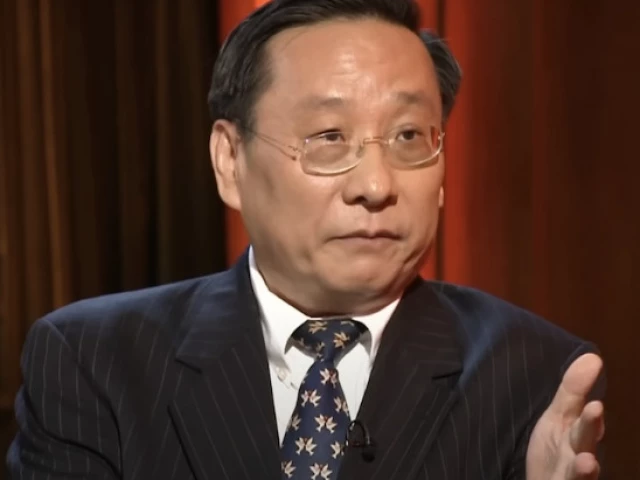By News Desk
In a recent webinar hosted by the Asian Institute of Eco-civilization Research and Development (AIERD), Professor Victor Gao, Vice President of the Center for China and Globalization, lauded Pakistan for its instrumental role in initiating China-US diplomatic relations. He described this as one of the most transformative events in modern history.
Professor Gao highlighted Pakistan’s mediation efforts as a prime example of effective diplomacy. He noted that by connecting countries with vastly different backgrounds, Pakistan had made a remarkable contribution to global peace and development.
He explained that the improvement in China-US ties not only accelerated the pace of globalization but also helped bring nations closer together, significantly influencing the global order.
When discussing China-Pakistan ties, Professor Gao remarked that no country is more important to China than Pakistan. He described the relationship as “iron-clad,” emphasizing its strategic and enduring nature.
He reaffirmed China’s unwavering support for Pakistan’s sovereignty and national interests, citing past instances such as the 1965 and 1971 wars, during which China stood firmly by Pakistan, as well as its support in recent conflicts.
Professor Gao reiterated that China will always stand by Pakistan to defend its legitimate interests and sovereignty, underscoring the special place Pakistan occupies in China’s foreign policy.
Commenting on Pakistan’s internal security, he expressed confidence that hostile forces would never succeed in destabilizing the country.
He firmly rejected the idea of an independent Balochistan, declaring that such a notion would remain an unfulfilled dream, regardless of the intentions of separatists or hostile actors.
In concluding his speech, Professor Gao acknowledged Pakistan’s long-standing role as a key geopolitical actor since its independence, noting its participation in pivotal global events that have shaped contemporary history.
AIERD Chairman Zahid Latif Khan echoed Professor Gao’s sentiments and expressed appreciation for his thoughtful remarks on the importance of Pakistan-China relations.
Khan emphasized the need to deepen economic collaboration, particularly in financial integration and cooperation between the two nations’ stock exchanges.
He also proposed that Chinese firms operating in Pakistan could benefit from engaging with the country’s Islamic finance mechanisms, such as Sukuk Bonds.
Responding to a question during the webinar, Professor Gao stated that Pakistan holds an advantage over India in a five-dimensional warfare framework, and expressed optimism that India would avoid future military provocations.
He also emphasized the growing importance of technology and encouraged deeper China-Pakistan cooperation, particularly in artificial intelligence (AI). He highlighted China’s openness to AI collaboration and urged Pakistan to intensify efforts to seize this opportunity.
Professor Gao stressed the importance of joint efforts in technology and AI to lay a strong foundation for a prosperous future shared by both nations.
To conclude the event, AIERD CEO and moderator Shakeel Ahmad Ramay thanked Professor Gao and all attendees. He remarked that the China-Pakistan relationship is unique and cannot be fully explained by conventional geopolitical theories.
Ramay expressed hope that both countries would continue to work together toward building a shared future that advances global peace and sustainable development.
